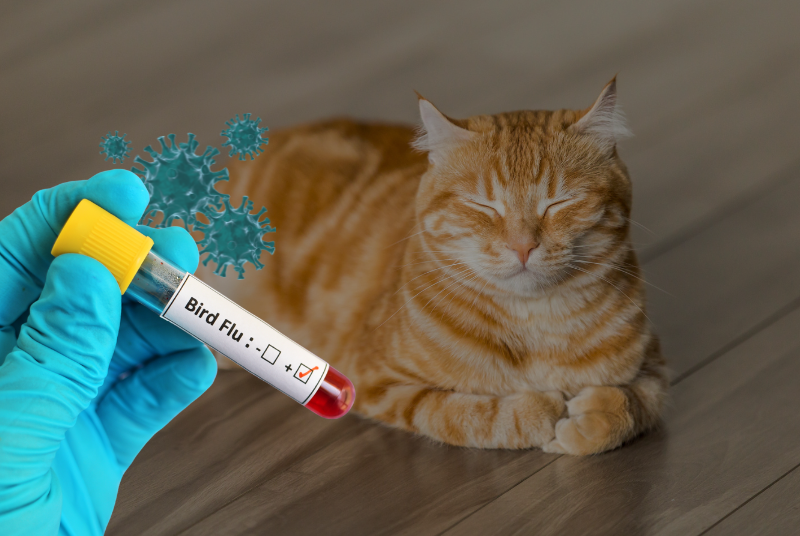
Listen to this note:
After California health and veterinary officials confirmed a case of H5N1 (bird flu) in an adopted cat in Half Moon Bay, California authorities the San Mateo County Board of Supervisors They called for preventing the spread of the virus.
According to the Centers for Disease Control and Prevention (CDC), while the risk of cats transmitting H5N1 to people is extremely low, it is possible for cats to transmit some strains of bird flu to people.
"While there are no human cases of H5N1 linked to this case, this detection in a cat highlights the importance of being proactive in preventing the spread of the virus," the city said in a statement.
However, residents whose pets show signs of illness should contact their veterinarian.
This cat's infection, which is not related to the recent case of bird flu in a backyard flock, was found in a stray cat in Half Moon Bay that had been adopted by a family. When it showed symptoms, it was taken to the Peninsula Humane Society, whose veterinarians examined it and ordered testing. Laboratory results confirmed H5N1. It is not known how the cat became infected and it was euthanized because of its condition.
Cats can be exposed to avian influenza by consuming infected birds, being in environments contaminated with the virus, and consuming unpasteurized milk from infected cows or raw food.
Outdoor pets, such as cats and dogs, are also at risk of infection.
Pets infected with the H5N1 virus may experience loss of appetite, lethargy and fever, as well as neurological signs such as circling, tremors, seizures or blindness.
Health authorities explained that the disease can rapidly progress to severe depression, discharge from the eyes or nose, as well as other respiratory signs such as rapid and shallow breathing, difficulty breathing, sneezing or coughing.
Pets with serious illnesses may die.
If a pet is showing signs of illness consistent with avian influenza and has been exposed to infected (sick or dead) wild or poultry birds, residents should contact a veterinarian and monitor their own health for signs of fever or infection.
“We all want to make sure our pets are healthy and safe from disease,” said Lori Morton-Feazell, San Mateo County Animal Control and Licensing chief. “If your pet is sick, your veterinarian can determine if your pet should be tested for avian flu or any other virus or disease.”
You may be interested in: Public Health Threats in 2025: Experts Warn of Bird Flu, Norovirus and More, Highlighting Crucial Importance of Vaccination

